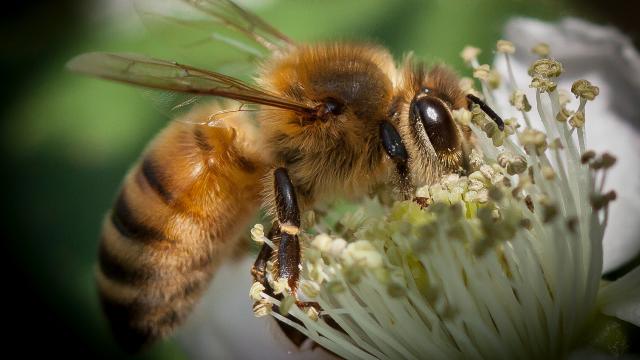Last month, an alarming scientific paper warned that over 40 per cent of all insect species are in decline. News of an impending “insectageddon”—a world either devoid of insects or plagued with pests—was broadcast far and wide by the media. There’s just one problem: Entomologists don’t buy it.
There’s no doubt that many insects are in trouble, and that human activity has a lot to do with it. But the idea that insects as a whole will soon be gone isn’t supported by the paper, which features systemic biases and data limitations, according to two recent response letters.
Both of those responses call out methodological issues with the paper, which was a meta-analysis of studies that track insect populations around the world. To see if they could tease out any global trends, the study authors from the University of Sydney and the University of Queensland searched the online database Web of Science for the keywords “insect,” “decline,” and “survey.” As critics have pointed out, these terms immediately limit the scope of analysis to studies that spot a negative trend (and to those included in the searched papers’ citations, per the meta-analysis’s methodology).
Another issue with the analysis was that of the 73 papers that fit the search criteria, the vast majority were in North America or Europe. While the authors freely admit this limitation, in their conclusions they justify making global extrapolations about insect declines—including that a third of insect species are threatened with extinction, and 41 per cent are declining—because the root causes the analysis points to, agricultural intensification and agro-chemical pollutants, are problems the world over.
To a trio of UK-based biologists at the University of York and Cardiff University, this doesn’t pass the smell test. “Trying to extrapolate from population or biomass declines over several decades, or from threatened species lists, in ‘developed’ temperate zone countries to, say, 100‐year species‐level extinctions of undescribed endemics confined to the precipitous eastern flanks of the Andes does not wash,” these critics wrote in Global Change Biology earlier this month.
Finnish biologists at the University of Jyväskylä, writing in Rethinking Ecology this week, called out other issues, including the fact that local extinctions reported in some of the studies aren’t easily extrapolated to a broader scale, and at least one instance in which insects with the conservation designation “data deficient” were lumped in with those designated “vulnerable” and thus assumed to be declining when we can’t be sure.
These authors also had some backseat editorial criticisms, taking issue with the paper’s use of words like “shocking” and “dreadful.” Frankly, though, the paper’s alarmed tone does speak some truth. The whole point of the analysis was that many studies have reported declines in regional insect numbers, trends that have been tied to everything from agriculture to climate change. And the idea that we’ve pushed even a fraction of the world’s insects into irreversible decline is arguably awful, even if it isn’t 40 per cent awful, or insect apocalypse awful.
While this study and much of the coverage of it may have been exaggerated, there’s an urgent need to adopt conservation measures to help ailing insect populations, whether that’s by limiting pesticide use, creating more wildlife corridors through urban areas, or abandoning the ecological disaster that is the suburban lawn.
At the same time, there’s still a lot of basic, exploratory research to be done to understand the incredible diversity of creepy crawlers out there and the ecological roles they play. As community ecologist Manu Sanders of the University of New England noted in a blog post on the controversy, “We don’t know anything about most insect species on Earth.”
